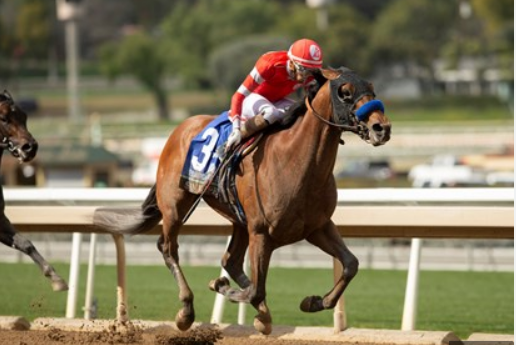Is Practical Move A Kentucky Derby Contender Or Pretender?

Photo Credit: Paul https://www.flickr.com/photos/81265351@N00/3310056550
Author: Lindsay Griffin
Tim Yakteen had a pretty heavy hand going into the Grade II San Felipe Stakes at Santa Anita last Saturday.
Yakteen is a former assistant to controversial trainer Bob Baffert, and for the last two years, has been the main beneficiary of Baffert’s ban from Churchill Downs and the Kentucky Derby. If you know how to bet on the 2023 Kentucky Derby you are probably familiar with Baffert’s name.
Both last year and this year, Baffert had a large group of talented horses, but was unable to race or even qualify them for the first jewel of America’s Triple Crown. Instead, Baffert was made to transfer his Derby-bound charges to other trainers. For most of them, he chose Yakteen.
Among the horses now running in Yakteen’s name were Hejazi, Fort Bragg, and Mr. Fisk, who ran in the San Felipe- as well as the horse who likely would have been favored had he not suffered a minor injury the day of the race, National Treasure.
It was not surprising, therefore, that Yakteen found himself in the winner’s circle that afternoon. What was, perhaps, a bit more of a shock was that he went there by way of Practical Move – a colt Yakteen himself had been training all along.
Is Practical Move a Kentucky Derby contender or pretender? You decide.
Pedigree Pros
There is a lot to like about Practical Move’s pedigree. His sire, Practical Joke, was a multiple grade I stakes winner who specialized in races around a mile in which he could come from off the pace. His damsire, Afleet Alex, won graded stakes at six and seven furlongs at two and went on to win the Preakness and the Belmont Stakes at three. Practical Move’s bloodlines display a good balance of speed and stamina.
Pedigree Cons
Practical Joke is a third crop sire this year, and while he has done well, he has yet to ascend to the top ranks. His only Grade I winner is the filly Chocolate Gelato, winner of the Grade I Frizette Stakes over a sloppy Belmont track last fall, who followed up that win with a last-place effort in the Breeders’ Cup Juvenile Fillies and has not returned to the track since.
Race Record Pros
Practical Move’s run in the San Felipe was the work of a professional racehorse. He suffered a bad start, hitting the gate as the race began, but he overcame his trouble to do what a champion does: win. He stalked the pace set by Hejazi alongside eventual runner-up Geaux Rocket Ride, made his bid at the quarter pole, and never looked back. He appears to have the grit and patience that can go quite far in the Kentucky Derby.
He also has a fairly sound foundation as a two-year-old. After breaking his maiden via DQ in his third start (having had the misfortune of racing against Cave Rock and National Treasure in his first two attempts), Practical Move finished third in the Grade III Bob Hope Stakes on November 20th, and then won the Grade I Los Alamitos Futurity on December 17th.
Race Record Cons
The class of the West Coast three-year-olds is, at this point, debatable. None of the horses that Practical Move has defeated have flattered him much in subsequent performances. Carmel Road, who was second best in the Los Alamitos Futurity, finished a dull eighth in the Grade III Gotham Stakes as the second choice.
Fort Bragg, third in the Los Alamitos Futurity, ran fifth in the San Felipe. Tall Boy, who followed Fort Bragg in fourth did go on to win the Group III UAE Two Thousand Guineas against another field of questionable quality; Arabian Lion, who was last, also ran last in his next start, the Grade II Robert B. Lewis Stakes.
